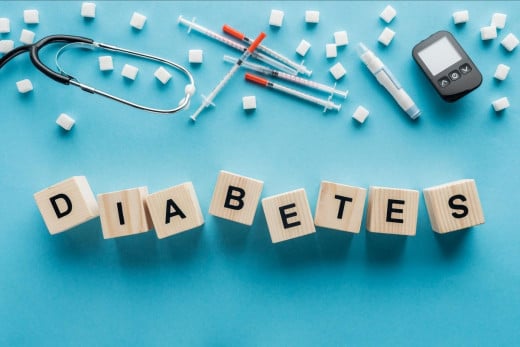Diabetes As a Side Effect of Cancer Treatment

Diabetes As a Side Effect of Cancer Treatment
As if battling cancer isn't enough, many patients also have to deal with the unexpected side effect of diabetes during and after treatment. This can be a daunting experience for anyone, but knowing what to expect and how to manage it can make a huge difference in your overall health and well-being.
In this blog post, we'll cover important things you should know about diabetes as a potential side effect of cancer treatment, so you can face this challenge head on with confidence and knowledge. Whether you're a patient, caregiver or simply interested in learning more about this topic – keep reading!
Cancer Treatments That Can Cause Diabetes
Cancer treatments that can cause diabetes include chemotherapy, radiation therapy, and certain targeted cancer drugs. These treatments can damage the pancreas, leading to diabetes. People who have cancer are at an increased risk for developing diabetes, especially if they have a family history of the condition.
If you have cancer and are treated with any of these therapies, your doctor will closely monitor your blood sugar levels. It’s important to keep your blood sugar under control because high levels can lead to serious complications such as heart disease, stroke, and kidney disease.
There are some things you can do to help lower your risk of developing diabetes after cancer treatment. Maintaining a healthy weight, eating a healthy diet, and getting regular exercise can all help reduce your risk. If you smoke, quitting smoking is also important in lowering your risk of developing diabetes.
Symptoms of Diabetes
Patients with cancer should be cognizant of some key indications of diabetes. These include excessive thirst, increased frequency in urination, exhaustion and unexpected weight loss. If you recognize any of these signs, it is essential to talk to your doctor immediately for testing and possible treatment.
Risks Associated With Diabetes
There are a number of risks associated with diabetes, some of which can be serious or even life-threatening. These include:
- Diabetic ketoacidosis – a condition that can occur if insulin levels drop too low, leading to the build-up of ketones in the blood which can lead to coma or death
- Diabetic neuropathy – damage to the nerves caused by high blood sugar levels, which can lead to pain, numbness or paralysis in the extremities
- Cardiovascular disease – diabetes is a major risk factor for heart disease and stroke
- Kidney disease – diabetes is the leading cause of kidney failure
- Eye problems – including diabetic retinopathy, which can lead to blindness
People with diabetes need to be aware of these risks and take steps to minimise them, such as keeping their blood sugar levels under control and attending regular check-ups with their doctor.
How to Manage Diabetes
There are a few different ways to manage diabetes, depending on its severity. These include lifestyle changes (such as diet and exercise), medication, and insulin therapy. Your doctor will work with you to create a management plan that is right for you.
In conclusion, diabetes is a challenging complication that sometimes arises as a result of cancer treatments. With the right knowledge and help on hand, those with diabetes brought on by such treatments can successfully address their symptoms and keep their health in check. We trust that this article has enabled you to gain greater insight into why the treatment of cancer can lead to diabetes and strategies one may employ for managing it. Remember: assistance can be accessed, so don't hesitate to seek it out!


Comments
Post a Comment